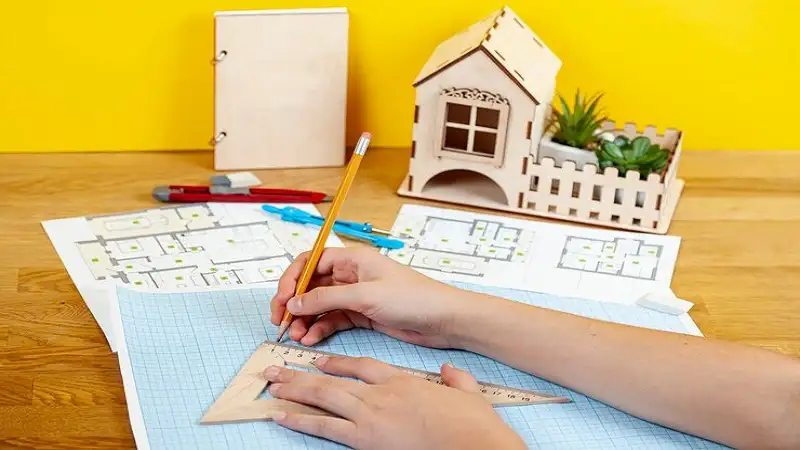Home additions can be a fantastic way to increase the living space, enhance functionality, and boost the value of your property. However, planning a successful home addition requires careful consideration to ensure that the project meets your needs and adheres to local regulations. Below are the top seven considerations to keep in mind when planning a home addition.
1. Define Your Goals and Needs
Before diving into any construction plans, it’s crucial to clearly define your goals and needs. Ask yourself the following questions:
- What is the primary purpose of the addition? Are you looking to add a bedroom, a home office, or perhaps a family room?
- How will this space enhance your lifestyle? Consider how the new area will be used and how it can improve your daily life.
- What are your long-term plans? Think about whether your family is likely to grow or change in the coming years. This can affect the size and type of addition you choose.
Creating a detailed list of your goals will guide the design process and help you communicate effectively with contractors and designers.
2. Budget Wisely
A well-thought-out budget is essential for a successful home addition. Start by estimating the total cost of the project, including materials, labor, permits, and any unexpected expenses that might arise. Here are some tips to manage your budget effectively:
- Research Costs: Look into the average costs for similar additions in your area to create a realistic budget.
- Get Multiple Quotes: Contact several contractors for quotes to compare pricing and services.
- Include a Contingency Fund: Setting aside an additional 10-20% of your budget for unforeseen expenses can save you from financial strain later on.
Budgeting wisely not only helps avoid surprises but also ensures that you can complete your project without sacrificing quality.
3. Understand Local Building Codes and Permits
Every area has specific building codes and regulations that must be followed for home additions. Before starting your project, take the time to understand what is required in your municipality:
- Research Building Codes: Local codes dictate everything from structural requirements to electrical and plumbing systems.
- Obtain Necessary Permits: Most additions require permits before construction can begin. Failing to secure these can lead to fines or even having to remove your addition.
Consulting with your contractor or local building authority can provide clarity on what permits you need and the specific regulations that must be adhered to.
4. Choose the Right Location
The location of your addition can significantly affect both the functionality of the space and the overall look of your home. Consider these factors when deciding on the location:
- Accessibility: Ensure the new space is easily accessible from the main living areas.
- Natural Light: Consider how sunlight will enter the addition. A well-lit space can enhance its usability and appeal.
- Flow and Layout: Think about how the new addition will fit into the existing layout of your home. The addition should seamlessly integrate with the overall flow of your living space.
Choosing the right location for your addition can enhance both its aesthetic and functional value.
5. Plan for Energy Efficiency
Incorporating energy-efficient features into your home addition not only reduces environmental impact but can also lead to significant savings on utility bills over time. Here are some strategies to consider:
- Insulation: Ensure that your addition is well-insulated to maintain comfortable temperatures year-round.
- Windows and Doors: Choose energy-efficient windows and doors that minimize heat loss and gain.
- Sustainable Materials: Consider using eco-friendly materials that have a lower environmental impact.
Planning for energy efficiency can improve the overall comfort of your home and increase its value.
6. Select the Right Contractor
Finding the right contractor is crucial to the success of your home addition. Here are some tips to help you choose wisely:
- Research Credentials: Look for licensed, insured, and experienced contractors who specialize in home additions.
- Read Reviews: Check online reviews and ask for references to gauge the contractor’s reputation and quality of work.
- Interview Candidates: Speak with multiple contractors to discuss your project and get a feel for their communication style and professionalism.
A reliable contractor will not only execute your vision but will also ensure that the project runs smoothly and stays on schedule.
7. Prepare for Disruption
Home additions can be intrusive, so it’s essential to prepare yourself and your family for the disruption that may occur during construction. Here are some ways to mitigate the impact:
- Create a Temporary Living Space: If the addition is extensive, consider setting up a temporary living area to minimize inconvenience.
- Establish a Timeline: Work with your contractor to create a clear timeline for the project, setting expectations for start and completion dates.
- Communicate with Your Family: Keep open lines of communication with your family about the construction process, timelines, and any changes that may arise.
Preparing for the disruption of a home addition will help you navigate the process with less stress.
Conclusion
Planning a successful home addition requires careful consideration and preparation. By defining your goals, budgeting wisely, understanding local regulations, choosing the right location, planning for energy efficiency, selecting a reliable contractor, and preparing for disruption, you can ensure that your home addition meets your needs and enhances your living space. Remember, a well-thought-out addition not only improves your home but also adds value and comfort for years to come.

